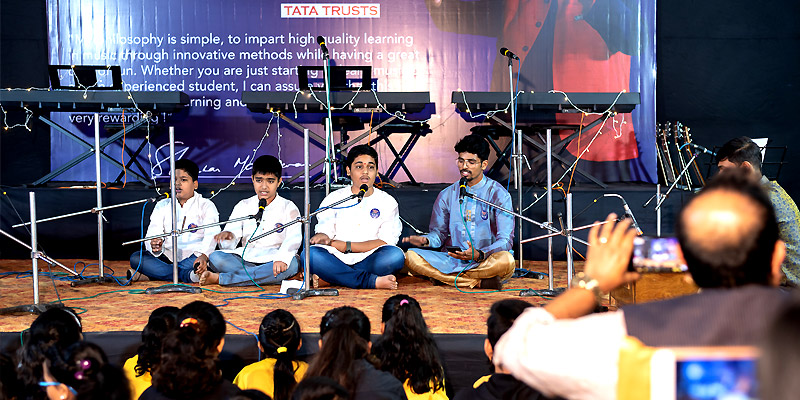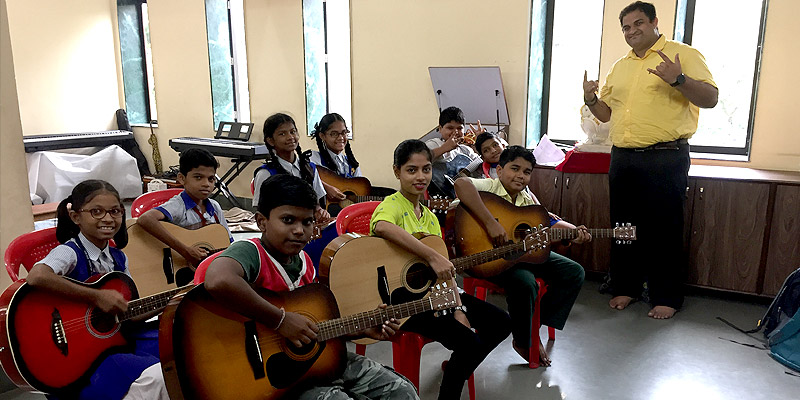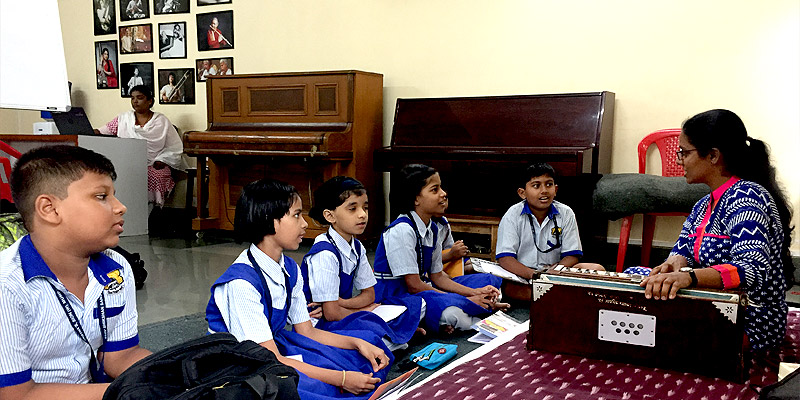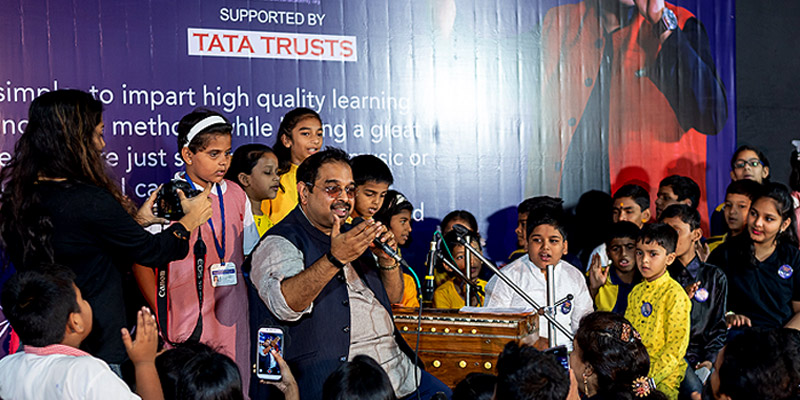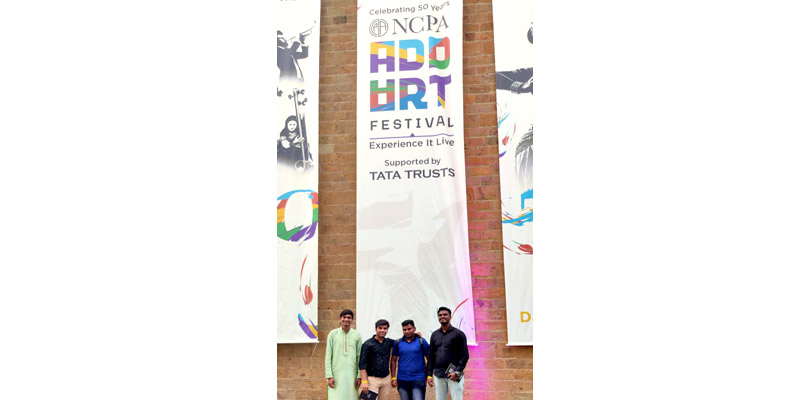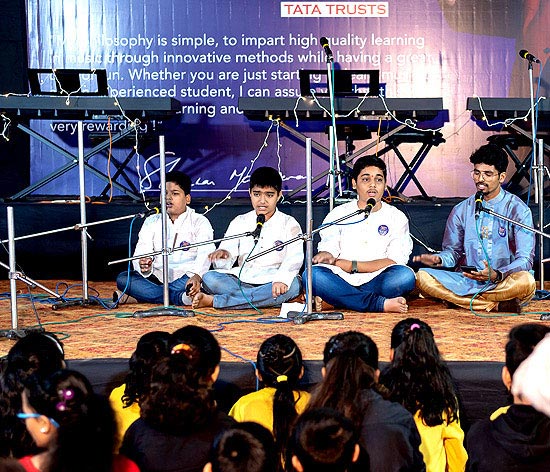
In India, there is a lack in opportunity and access amongst marginalised communities keen to pursue Indian and western classical music as pedagogy and to seek artistic development as a career option. Whilst a series of music-based interventions have been designed to engage disadvantaged communities, these remain largely drawn to an unconventional narrative of hip hop, pop and alt rock that, in the end, culminates as a commercial entity for the artistic promoter and not for the engaged. With a focus on supporting excellence in the arts, the Tata Trusts mandates their support for initiatives across grassroots, regions and institutions that seek to develop long-term capacities of individuals/entities who address a fledging gap in their sector/s as opposed to sporadic interventions. One such entity is the Inspire India Program.
In 2017, the Arts and Culture portfolio went to work with the Shankar Mahadevan Academy (SMA) to develop a grassroots initiative built on the lines of the Trusts’ mandate to, identify, build and sustain artistic brilliance in traditional music practices across marginalised communities of Mumbai.
Titled the ‘Inspire India Program’, the initiative began as a three-year pilot across Sion, Chembur and Govandi with a multi-layered approach. SMA mirrored their mainstream lesson and teaching modules as Inspire India’s core content framework. This meant prospective students of Inspire India would now have access to the same learning as that of the conventional students at a fraction of the cost. The Trusts’ programme grant enabled SMA to build three community learning centres in charitable schools across the project locations.
While the partnership with the Trusts in programme development enabled SMA with the implementation, it certainly treaded through multiple learnings and ground-based challenges. Parents (mostly blue-collared professionals) were reluctant to enrol their children at IIP. This was addressed through community centric music advocacies devised in the initial months to change perceptions and aid enrolment. IIP’s interventions to pre-empt these risks and mitigate them is primarily owed to their programme personnel. Ritika Madan, the Mumbai Program Head, and her core team of administrators and faculty have consistently demonstrated the importance of programme administration and how it sits well within the content delivery to ensure seamless implementation.
With the challenges mitigated, the programme featured a series of milestones. As of today, 25 students wrote the Trinity London music exams for classical guitar and piano, eight of whom received distinctions. 1600 students between ages 4 to 82 have enrolled so far to learn Hindustani vocals, bhajans, folk and popular music and lost lullabies. Two senior students have been trained as community music educators, of whom, Sanket Joshi, the first community teacher of the programme, has now begun taking classes across the learning centres. Sanket is a first-generation music educator from his family.
Senior school learners at IIP have been exposed to a variety of music outreach across Mumbai relevant to their pedagogical training. This is primarily initiated to build their own artistic understanding as audiences and as prospective performers ending with a desk review that SMA conducts to gauge their cultural perceptions. In November, students from the IIP Hindustani classical music learning modules attended a day-long showcase of NCPA’s Morn to Dusk Classical Music Programme as part of their 50-year celebration, which was supported by the Tata Trusts.
A significant outcome of IIP lies in the aspiration and intent of the community. As recorded by SMA in their narrative report, the Govandi and Chembur learning centres recorded noteworthy pre-registrations for classes. This was attributed to parents who had already heard about its impact in Sion. We assume this is beyond the marketing initiatives of IIP and rests solely on the emotional connect people from marginalised communities have had for cultural interventions that aim to involve their children.
The Inspire India Program is in its third year, and is implemented from the DS School in Sion, the Govandi Education Society in Govandi and Shri Sanatan Dharma Vidyalaya in Chembur East.
— Arnab Banerjee
